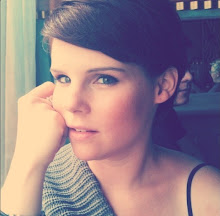When you stand on a street corner in New York with your eyes closed, you really feel the wind. It’s scary. When I was a teenager, I remember thinking to myself on the way home from a late night out somewhere that I knew the road so well I could drive it with my eyes shut. I closed them with my hands on the wheel and made it three seconds before I opened them again and thought about how stupid that was.
Testing blindness on a street corner is sort of the same. First, you know there are people all around you. You assume, at best, that everyone is looking at you, thinking you are crazy. You hope, at worst, that no one will attack you or steal your purse while you are defenseless. It goes against your every instinct to stand there still, listening and feeling and smelling but not seeing. Like lying down in the middle of the jungle, trying to sleep in a den of tigers.
Walking from my building to the train after work, I pass a disabled black man in a wheelchair. He is sitting with one wheel against the scaffolding that surrounds my building, not moving. He has his headphones in, and I follow the cord with my eyes as I walk: past his long arms, which are curved in places they aren’t supposed to be, and his hands, which are curved everywhere, to the end of the cord plugged into his cell phone. Then I see the phone fall to the ground, as if I had willed it there with my mind. It clatters.
I walk on, but I turn my head back. I see him struggling. He can’t seem to bend down at just the right angle. His phone has fallen slightly under his chair, and it is hard for him to reach it. I stop walking. I wonder if I should offer to help him. I wonder if it is safe and then I wonder if I might offend him. I watch for a few seconds longer to see if he picks it up himself. He doesn’t. I start walking back toward him.
I approach him from behind, watching him curl over and lurch for the phone in an awkward motion. I peek my head cautiously into his line of sight, and say, "Do you need me to help you?" He looks up at me just as his hand finally wraps around the phone and he retrieves it from the ground. "No, I got it," he says. The words are not articulate but I can make them out. His face is half-paralyzed, but he smiles at me. I can make it out.
A dear friend of mine recently told me he felt like he didn't know who I was anymore. It made me think. I thought about the changes I've gone through over the past year, all the pain and the fear and the joy and the anxiety and the loneliness of growing into a woman and finding myself as an artist. I thought of who I was a year ago today, and confessed to myself that I could not say with certainty, "I am the same person, at my core," which is what people say in these conversations. It's a gut response. My gut wouldn't let me say it. My core had been shaken so deeply, in ways good and bad, that I barely even recognized the old me. Like a friend I used to know but who moved far away and forgot to call on my birthday.
The man in the wheelchair smiled at me, and I realized something. I will always be moved by the beauty of tragedy and struggle and humanity. I will always try to help someone who needs it, if I think I can. I feel and do these things not because of some moral code stamped into me like a seal pressed into molten wax, and not because I thrive on the pleasure of knowing I did something good for someone else - but because those feelings and actions are who I am. They are not my core, not just a part, but the whole. They
are me. Everything else is just wandering.
The man in the wheelchair smiled at me, a reminder that people are strong even when they seem weak. Simply moving forward in time is an accomplishment, and I am thankful for the opportunity I’ve had to wander.









